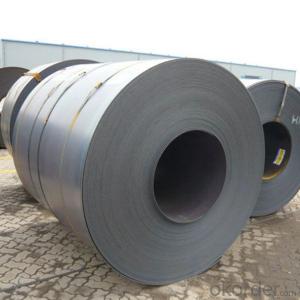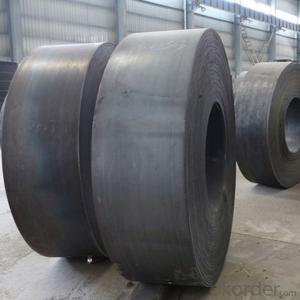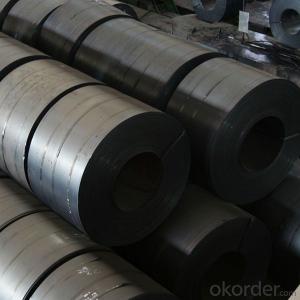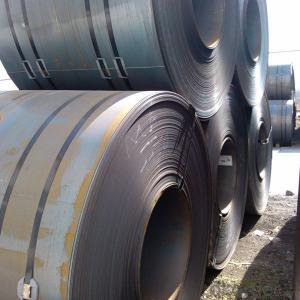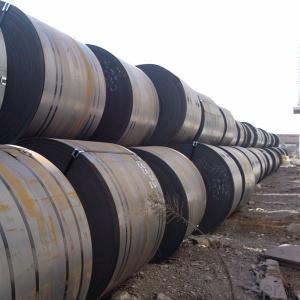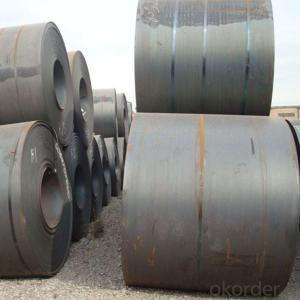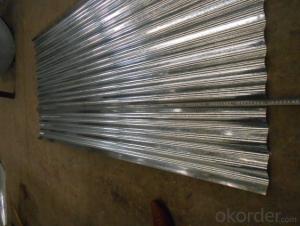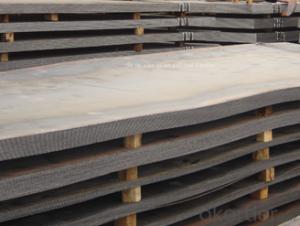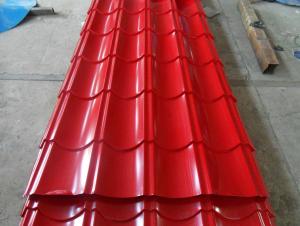Steel Coils Hot Rolled Steel Q235 Made in China
- Loading Port:
- Tianjin
- Payment Terms:
- TT OR LC
- Min Order Qty:
- 28 m.t.
- Supply Capability:
- 500 m.t./month
OKorder Service Pledge
OKorder Financial Service
You Might Also Like
Item specifice
DESCRIPTION FOR SS400 CARBON STEEL SHEET
1.Thickness: 1-200mm
2.Width: 100-3000mm
3.Length: 1000-12000mm
4. Applications :mining machinery, environmental protection, engineering
5. Grade:SS400 A 36 Q195.Q235.Q345.SPCC.SPCH
6.Surface : Hot Rolled Cold Rolled Galvanized Steel
DESCRIPTION:
GRADE: SS400, ASTM A36, A572, ST37,ST52, Q195, Q215, Q235,Q345, S235JR etc.
STANDARD: GB/T709-2006, ASTM A36, JIS G3101, DIN EN 10025, SAE 1045, ASTM A570
SPEC:
1)Width: 600-2500mm or 1000,1050,1250,1500,1800,2000mm
2)Thickness:1.5mm-200mm or as customers’ special requirements;
3)Length: 2-12m or as customers’ special requirements
PACKING:
1.Big thickness:by bulk vessel
2.Small thickness:packed by steel strips and shipped by container
3.According to the requirements of customers'
TRADE TERMS :FOB, CFR, CIF
DETAILED PICTURES FOR STEEL COILS
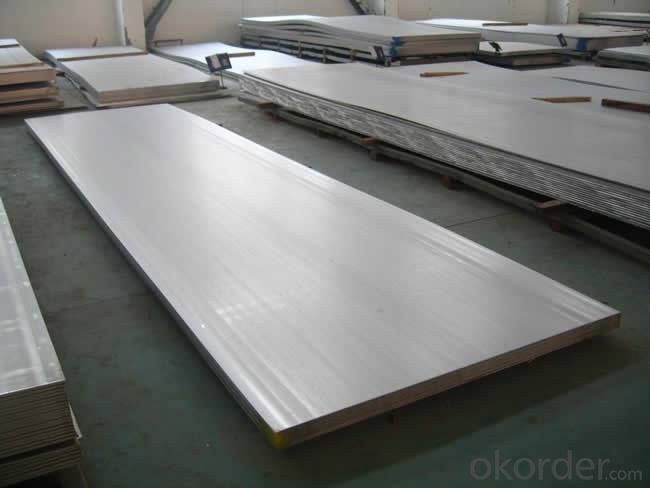
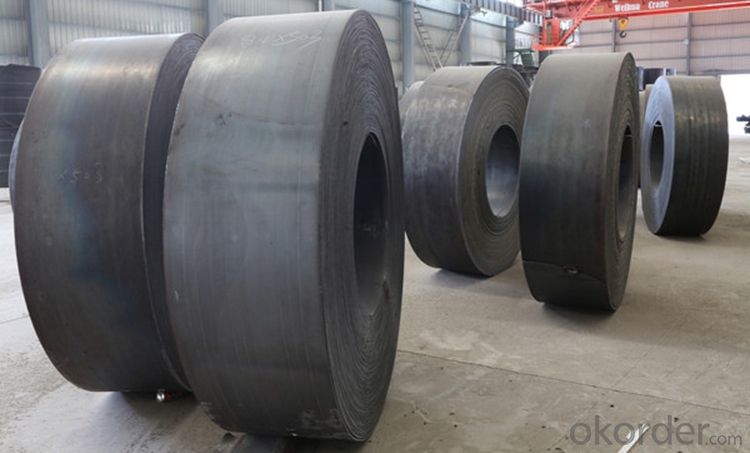
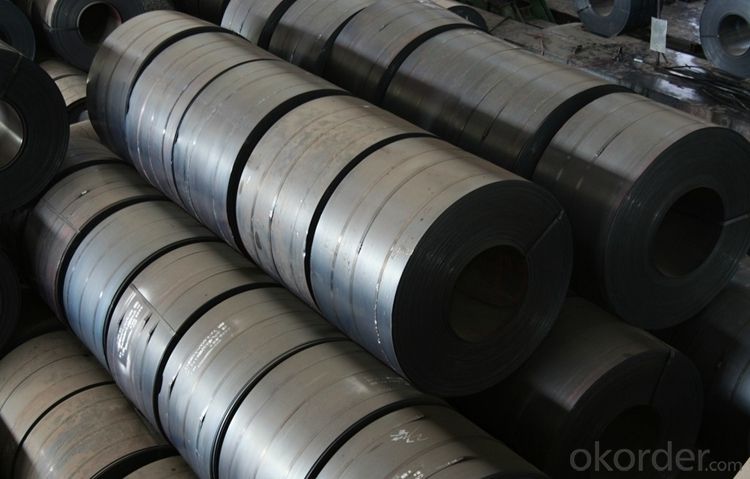
PAYMENT&DELIVERY FOR STEEL COILS/SHEETS
Payment Terms | 100% LC at sight,or 30%TT in advance, balance against B/L copy |
Delivery Time | With 30-40 days after deposit |
Price Terms | Ex-Work, FOB, CNF, CFR, CIF,etc |
FAQ:
Q:You are Factory or Trading Company?
A:We are factory,our main products include Steel plate,Steel Bar,Steel coils.
Q:What’s the MOQ?
A:Generally,the trail order will be accepted.The MOQ can be confirmed according to the different products.For example,the MOQ of rebar will be 25-50MT,the galvanized steel pipe will be 10MT,the stainless steel pipe will 1-5MT.
- Q:Can steel sheets be used for transportation applications?
- Transportation applications can indeed make use of steel sheets. Steel has gained immense popularity in the automotive and aerospace sectors owing to its exceptional strength, durability, and resistance to corrosion. Chassis, body panels, doors, and structural parts in various transportation components are often constructed using steel sheets. These sheets offer remarkable structural integrity and can endure substantial loads, making them ideal for vehicles and aircraft. Moreover, steel sheets can be effortlessly shaped, welded, and machined, enabling customization and efficient manufacturing procedures.
- Q:Are steel sheets corrosion-resistant?
- Yes, steel sheets can be corrosion-resistant depending on their composition and treatment. Stainless steel, for example, is known for its excellent corrosion resistance due to its high chromium content. This chromium forms a protective oxide layer on the surface that prevents further corrosion. Galvanized steel sheets are also corrosion-resistant as they are coated with a layer of zinc that acts as a barrier against corrosion. However, it is important to note that the corrosion resistance of steel can vary depending on factors such as the environment, exposure to chemicals, and maintenance. Regular inspection and maintenance are necessary to ensure the long-term corrosion resistance of steel sheets.
- Q:What are the safety considerations when working with steel sheets?
- When working with steel sheets, there are several important safety considerations to keep in mind: 1. Personal Protective Equipment (PPE): It is crucial to wear appropriate PPE to protect yourself from potential hazards. This may include safety glasses or goggles, gloves, steel-toed boots, and a hard hat. 2. Lifting and handling: Steel sheets can be heavy and awkward to handle. Use proper lifting techniques, such as bending your knees and keeping your back straight, or use mechanical lifting equipment like cranes or forklifts. Never attempt to lift a sheet that is too heavy for you alone. 3. Slips, trips, and falls: Steel sheets can create slippery surfaces, especially when wet or oily. Keep work areas clean and free of debris, and use non-slip mats or flooring where appropriate. Be cautious of trip hazards, such as cords or tools, and use caution when moving around the work area. 4. Sharp edges and corners: Steel sheets often have sharp edges and corners that can cause cuts or injuries. Use caution when handling and moving them, and wear gloves to protect your hands. If necessary, use edge protectors or file down any sharp edges to reduce the risk of injuries. 5. Fire hazards: Steel sheets can be flammable when exposed to high temperatures or sparks. Ensure that work areas are clear of flammable materials and follow proper fire safety procedures, such as having fire extinguishers readily available and knowing how to use them. 6. Noise and vibration: Working with steel sheets can generate significant noise and vibration. Wear ear protection, such as earplugs or earmuffs, to protect your hearing. If using power tools, ensure they are properly maintained and have vibration-dampening features to minimize the risk of hand-arm vibration syndrome. 7. Adequate ventilation: Some steel sheets may release fumes or dust when cut or welded. Ensure that the workspace is well-ventilated to prevent the accumulation of harmful gases or particles. If necessary, use exhaust fans or wear respiratory protection to avoid inhalation of hazardous substances. By following these safety considerations, you can minimize the risks associated with working with steel sheets and create a safer work environment for yourself and others.
- Q:What is the process of applying protective coatings to steel sheets?
- The process of applying protective coatings to steel sheets typically involves several steps. First, the steel sheets are thoroughly cleaned and prepared to ensure a clean and smooth surface. This may involve removing any existing rust, dirt, or contaminants. Next, a primer or base coat is applied to the steel sheets. The primer helps to promote adhesion between the steel surface and the protective coating. It also provides additional corrosion resistance. After the primer has dried, the main protective coating is applied. This coating can vary depending on the specific requirements and intended use of the steel sheets. Common types of protective coatings for steel include epoxy, polyurethane, or powder coatings. The coating is carefully applied to ensure an even and consistent coverage. Once the protective coating has been applied, the steel sheets are typically cured or dried according to the manufacturer's instructions. This allows the coating to fully bond and harden, increasing its durability and resistance to corrosion. Overall, the process of applying protective coatings to steel sheets involves cleaning and preparing the surface, applying a primer, applying the main protective coating, and properly curing or drying the coating to ensure optimal performance.
- Q:Can steel sheets be used for staircases?
- Yes, steel sheets can be used for staircases. Steel sheets are often used in the construction of staircases due to their durability, strength, and resistance to wear and tear. They can be molded and shaped into various designs to create aesthetically pleasing staircases while providing a sturdy and long-lasting structure.
- Q:What is the average cost of steel sheets compared to fiberglass?
- The average cost of steel sheets can vary compared to fiberglass sheets depending on a variety of factors. In general, fiberglass sheets tend to be less expensive than steel sheets. This is primarily because the raw materials used in steel sheet production are more costly, and the manufacturing process is more complex. Furthermore, steel sheets are renowned for their durability and strength, making them a popular choice for applications that require resilience and resistance to harsh weather conditions or impact. Conversely, fiberglass sheets are typically cheaper due to the lower cost of raw materials and the simpler manufacturing process involved. They are commonly employed in applications where weight and corrosion resistance are crucial factors, such as the construction of boats or aircraft. Nevertheless, it is important to acknowledge that market fluctuations, availability, and specific project requirements can also influence the cost comparison between steel and fiberglass sheets. Hence, it is advisable to obtain quotes from suppliers and compare prices to accurately determine the average cost within a given context.
- Q:Can 16Mn steel plate be used instead of Q345D steel plate?
- 16Mn steel plate, equivalent to Q345A steel plate, can not be replaced.
- Q:Can the steel sheets be used for industrial machinery?
- Industrial machinery can indeed utilize steel sheets. Steel, known for its robustness, endurance, and resistance to damage, is a favored option for constructing industrial machinery. By shaping, cutting, and welding steel sheets, manufacturers can produce diverse components and parts essential for industrial machinery. The adaptability of steel empowers manufacturers to design and fabricate machinery that precisely meets specifications and demands. Furthermore, steel's capacity to endure hefty burdens, extreme temperatures, and corrosive surroundings renders it suitable for a vast array of industrial applications.
- Q:Are steel sheets available in custom sizes?
- Yes, steel sheets are available in custom sizes.
- Q:STCC what's the quality of the cold rolled steel sheet?
- Cold rolled steel: rolled without heating at room temperature (strictly speaking below the recrystallization temperature).
1. Manufacturer Overview |
|
|---|---|
| Location | |
| Year Established | |
| Annual Output Value | |
| Main Markets | |
| Company Certifications | |
2. Manufacturer Certificates |
|
|---|---|
| a) Certification Name | |
| Range | |
| Reference | |
| Validity Period | |
3. Manufacturer Capability |
|
|---|---|
| a)Trade Capacity | |
| Nearest Port | |
| Export Percentage | |
| No.of Employees in Trade Department | |
| Language Spoken: | |
| b)Factory Information | |
| Factory Size: | |
| No. of Production Lines | |
| Contract Manufacturing | |
| Product Price Range | |
Send your message to us
Steel Coils Hot Rolled Steel Q235 Made in China
- Loading Port:
- Tianjin
- Payment Terms:
- TT OR LC
- Min Order Qty:
- 28 m.t.
- Supply Capability:
- 500 m.t./month
OKorder Service Pledge
OKorder Financial Service
Similar products
New products
Hot products
Related keywords
